Table Of Contents
- Why Is It Important to Understand Gun Laws?
- Specific Gun Laws Defined
- Packing Heat in the North – Carry Laws in the Northern States
- Southern Comfort in Gun Laws
- The Wild West Still Lives – Western States Carry Laws
- East Coast—The Land of “May Issue”
- Midwest—the Heart of America
- License to Carry Gun Laws by State FAQs
- What Else Should You Know about License to Carry Gun Laws by State?
- Recommended Reading
License to carry gun laws in the United States vary from state to state. All firearm legislation, including law pertaining to carrying a concealed firearm, is passed at the state level, independent of Federal firearms laws.
The result is a disparity in gun laws across the United States, varying in stance and ideology on matters such as permits for concealed carry, sales, and self-defense laws.
Why Is It Important to Understand Gun Laws?
Some state laws governing the ownership and use of firearms are more liberal than federal laws. This is not to say that any laws at the state level can override federal laws. It’s exactly the opposite, in fact. Federal law supersedes state law but it’s often left to lawmakers, the local law enforcement agency, and state police to deal with and enforce federal laws at the state/local level.
Knowing what the gun laws are in your state is an important part of gun safety. Even if you do not agree with the laws in your state, you must abide by them – it’s an important part of being a responsible gun owner. If you’d prefer the gun laws in your state to be different, the appropriate way to deal with the issues you have is by encouraging your state’s lawmakers to make changes. In the meantime, you need to follow whatever laws are in place, even if you are vocal about thinking they need to be changed. It does no good to ignore or disobey gun laws if you are hoping to change the laws positively.
If you plan to travel with your handgun, it’s also important to know how the laws in other states affect you. If you are traveling through a state that has a different license-to carry law than your home state, you are responsible for knowing what needs to be done differently when it comes to a concealed weapon. Ignorance is not an excuse if you are found to violate a state’s laws, even if you are not from that state. Make sure you practice responsible gun-carrying regardless of what state you’re in.
Specific Gun Laws Defined
Liberty and a Loaded Gun – Navigating the 50 States’ License to Carry Laws. Pull up a chair and buckle in because we’re packin’ a whole lot of information into this guide. We’re aiming to give you an in-depth look into every American state’s License to Carry laws─ no politics, no fluff, just plain truth.
Source: canva.com
Carrying a firearm in the United States is either by concealed carry or open carry. The distinction between the two speaks for themselves but an openly carried firearm is visible to the public and a concealed carry firearm is concealed or hidden (usually under clothing). Federal law does not govern the issuance of concealed carry permits in the United States.
All 50 states must issue permits to carry a firearm, per the 2nd amendment of the United States Constitution. That said, some states have designed an application process so daunting the average person is essentially barred from carrying a firearm legally. These are typically the states that adhere to a “may issue” policy, which includes California, Hawaii, New York, and a few others.
Concealed carry laws have three categories or issue procedures. There were formerly four categories – a “No Issue” policy which has been determined US by court rulings to be unconstitutional. The other categories are:
-
Unrestricted –
This means a person is not required to have a firearm carry permit. It is most commonly referred to as Constitutional Carry.
-
Shall Issue –
This statutory language means that a citizen is required to have a carry permit. The person must meet any requirements set by state law, such as being of minimum age, completing training, passing a background check, etc.
-
May Issue –
A person is still required to obtain a permit to carry but in this case, state laws are very restrictive and might even be impossible to abide by. An example of this is that in some cases, an applicant for a carry permit is asked to prove a justifiable need for a permit to be issued. It is then up to the state’s law enforcement officials as to whether a permit to carry will be issued based on the demonstrated ‘need.’ Some state just refuse to issue a permit to anyone, based on the belief that there is no justifiable reason to carry one.
The “may issue” states are gradually waning due to more court rulings that find against their gun policies. For example, the District of Columbia was compelled to switch from a “may issue” to a “shall issue” policy by federal ruling. “May issue” appears to be the trend in statutory language moving forward.
Packing Heat in the North – Carry Laws in the Northern States
Starting up North, states like Vermont, Maine, and New Hampshire respect the Constitution in its purest form – you got a firearm? Carry it, open or concealed. No license needed, a nod to the Second Amendment rights. Sliding over to New York or New Jersey, however — that’s a different story. There, you gotta jump through flaming hoops, wrestle a bear, and deal with “may issue” laws that make gettin’ a license harder than finding a decent cup of coffee at a gas station.
Southern Comfort in Gun Laws
And now, we come down to my neck of the woods – the South. Where the tequila is stronger and, as they say- we do things a little different here. Most Southern states including Texas, Tennessee, and Kentucky follow a “shall issue” protocol. This means unless you’re a felon, carrying a gun is as easy as getting a side of fries with your burger. And in states like Mississippi, Arizona, and Oklahoma, you can stroll down Main Street with a gun at your hip, no permit necessary.
The Wild West Still Lives – Western States Carry Laws
In cowboy county, a.k.a. The West, you’d reckon things would be a little easier when it comes to packin’ heat. Well, not quite. Places like California and Hawaii have some of the toughest gun laws in the country. Conversely, states like Utah, Nevada, and Montana are more Second Amendment friendly, leaning towards “shall issue”.
Let’s shimmy on to Alaska, a.k.a. ‘The Last Frontier.’ Up there, in the icy wild, they genuinely stick to the ‘frontier lifestyle’, without requiring a permit to carry a firearm.
East Coast—The Land of “May Issue”
East Coast states, the original birthplace of America, incorporate a range of gun regulations. From “may issue” restrictions in places like New Jersey and Massachusetts, to “shall issue” laws in states like Pennsylvania and New Hampshire. It’s safe to say, East coast states stir a spectrum of tastes in gun liberties.
Midwest—the Heart of America
Venture over to the Midwest, the heart of the country, we see states like South Dakota and Kansas require no permit to carry a firearm. That’s not always the case though; states like Iowa and Minnesota are “shall issue” states, while places like Illinois opt for a “may issue” policy.
License to Carry Gun Laws by State FAQs
What Are The General Requirements To Apply For A License To Carry (LTC) In Most States?
While the specific requirements vary by state, in most cases, you need to be a legal resident of the state where you’re applying, be at least 21 years old, have no prior felony convictions, and pass a background check. Many states also require applicants to complete a firearms safety course.
How Do State Reciprocity Laws for Concealed Carry Licenses Work?
Reciprocity laws are agreements between states that recognize each other’s concealed carry licenses. This means if you have a license to carry in one state, it’s recognized in another state that has a reciprocity agreement. However, it’s important to note that the rules and regulations are subject to change and vary considerably. Always remember to check the current laws in any state where you plan to carry your firearm.
Are There States Where You Don’t Need A License To Carry A Firearm?
Yes, these are known as constitutional carry states. In these states, no permit is required to carry a concealed firearm if you’re a law-abiding citizen. As of now, there are 21 constitutional carry states, but the list is continuously changing, so it’s vital to reconfirm.
Does My Military Training Count Towards The Required Firearms Training Course In Some States?
Yes, in many states, your previous military firearms training can count towards the required firearms safety or training course. However, this isn’t true of all states, so it’s crucial to check the specific laws in the state where you’re applying.
What Happens If I Move To A Different State After Receiving My License To Carry?
If you move to a different state, your current license may no longer be valid in your new state of residence. Each state has their own set of regulations, and it will likely require you to apply for a new license. Ensure you familiarize yourself with the specific firearm laws in your new state of residence.
What Else Should You Know about License to Carry Gun Laws by State?
Source: canva.com
Carrying a weapon with you when you leave the house is a matter of personal safety. The first step in practicing this right is to know the gun laws in your state. Once you are familiar with the laws affecting you, it’s also important to know how to carry and use your gun safely. There are many ways you can practice safe gun carrying and usage and every gun owner is responsible for making sure he or she is capable of doing so.
If you intend to carry, make sure you know how to do so safely. Commit to practicing the use of your gun, as well. It’s not enough to simply carry your gun. You also need to know how to shoot responsibly which takes practice. Anyone who wants to carry a gun has the right to do so but also the responsibility to take the gun to the shooting range and practice on a regular basis. Safe carry and use of your gun should be habit and that habit can only be developed over time with practice.
The more you know about gun laws and gun safety, the better off everyone will be. Not only will you be able to offer protection, your education will enable you to be an advocate for safe gun use. Now you know your license to carry gun laws by state.
Source of Featured Image: canva.com



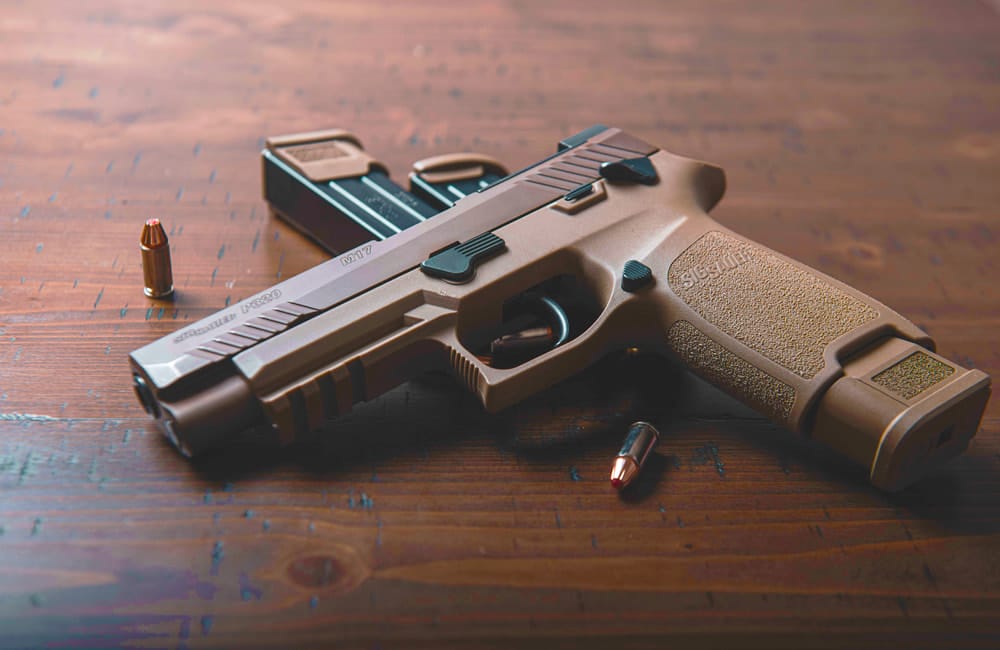
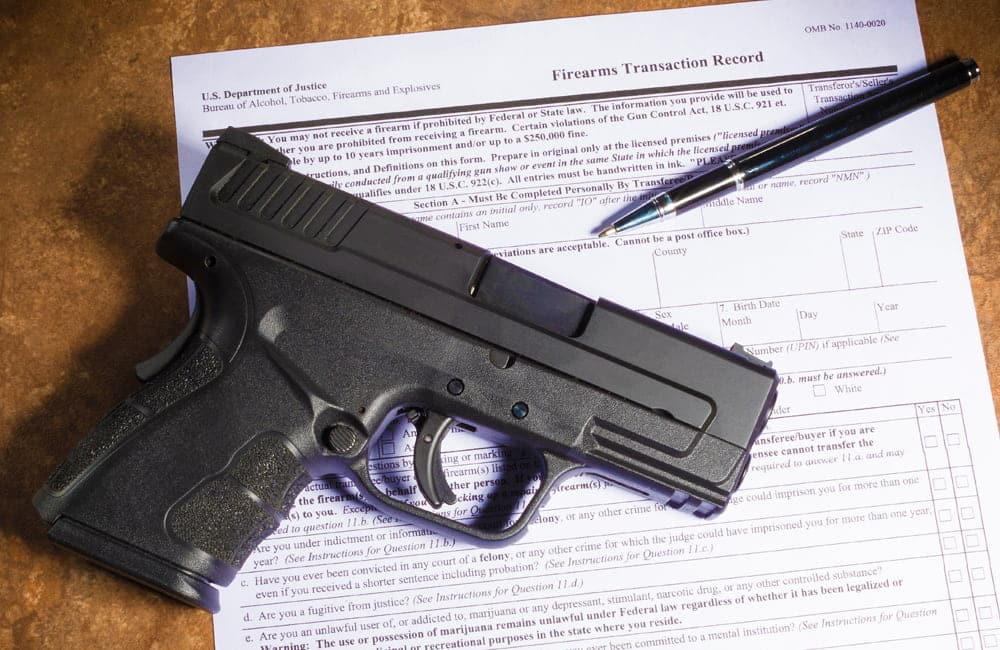
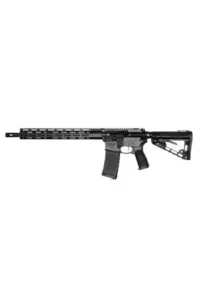

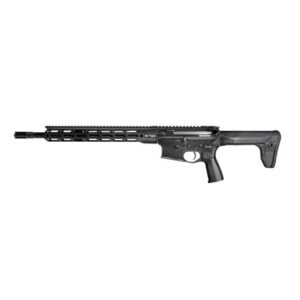
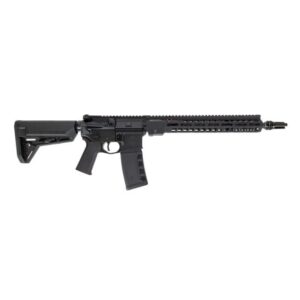





One Response
Why does a line state: Gun laws by state and then not give the information state by state? That’s what I’m trying to find and nowhere will it just list each state and what their laws are. Frustrating!